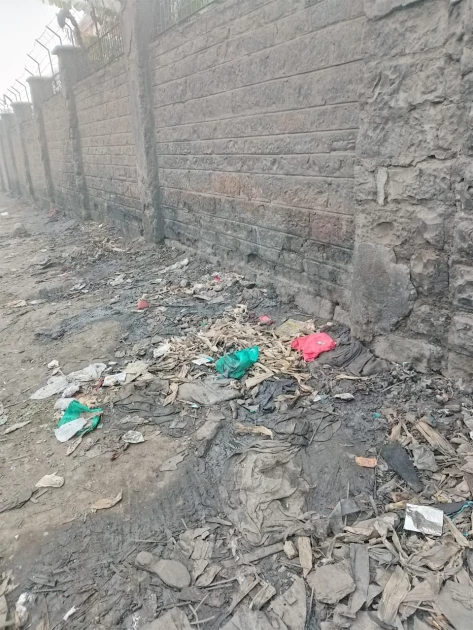Nairobi's sanitation crisis as some residents defy guidelines


Audio By Vocalize
Despite clear signage warning against public urination and littering in designated areas, a section of Nairobi residents continue to disregard rules; creating a sanitation crisis that’s affecting small businesses and public health.
In Kariokor, traders say the unsanitary conditions are driving customers away.
Nelson Musili, who runs a shop near one of the affected alleys, says the foul smell from people urinating near his business has led to a sharp drop in customer traffic.
“Business is going down every day because of the stench. People don’t want to come close,” Musili says.
“I’m urging the government to build public toilets that are free, especially for people who can’t afford it, like the street families who have no access.”
Reuben Mwangi, another trader, says the situation is even worse because the areas being misused are close to where people eat and sell food—posing a serious health risk.
“It’s harmful to our health. People urinate or dump garbage near food stalls. It’s unsafe and the government should address this issue,” he says.
According to Geoffrey Mosiria, the Chief Officer of Environment in Nairobi City County, the city has implemented various interventions—from public education campaigns to the enforcement of sanitation laws.
“We’ve put up notices and sensitized residents. So far, cases of public urination have reduced by 90%,” Mosiria says.
In addition, Mosiria says that those caught breaking the law are taken to court, where magistrates impose fines of Ksh. 10,000 and above.
In some cases, offenders are ordered to perform community service like cleaning streets or cutting grass.
While the city has established pay-to-use toilets across Nairobi, access remains a challenge for some.
Mosiria says the Ksh. 10 fee collected from users goes towards maintaining the facilities—paying cleaners and buying essentials like detergent and tissue paper.
“We are considering introducing free toilets, especially in underserved areas, to ensure even those who cannot afford the fee have access,” he explains. “This is after we ensure that there are enough payable toilets in every place in town.”
Health expert Dr. James Wamukoya says if left unchecked, poor sanitation could trigger serious disease outbreaks in the city.
“Conditions like this can easily lead to diseases such as waterborne diseases, typhoid, cholera and bloody diarrhea,” he notes. “Everyone should make sure that they are responsible and do what is necessary when it comes to relieving themselves.”


Leave a Comment